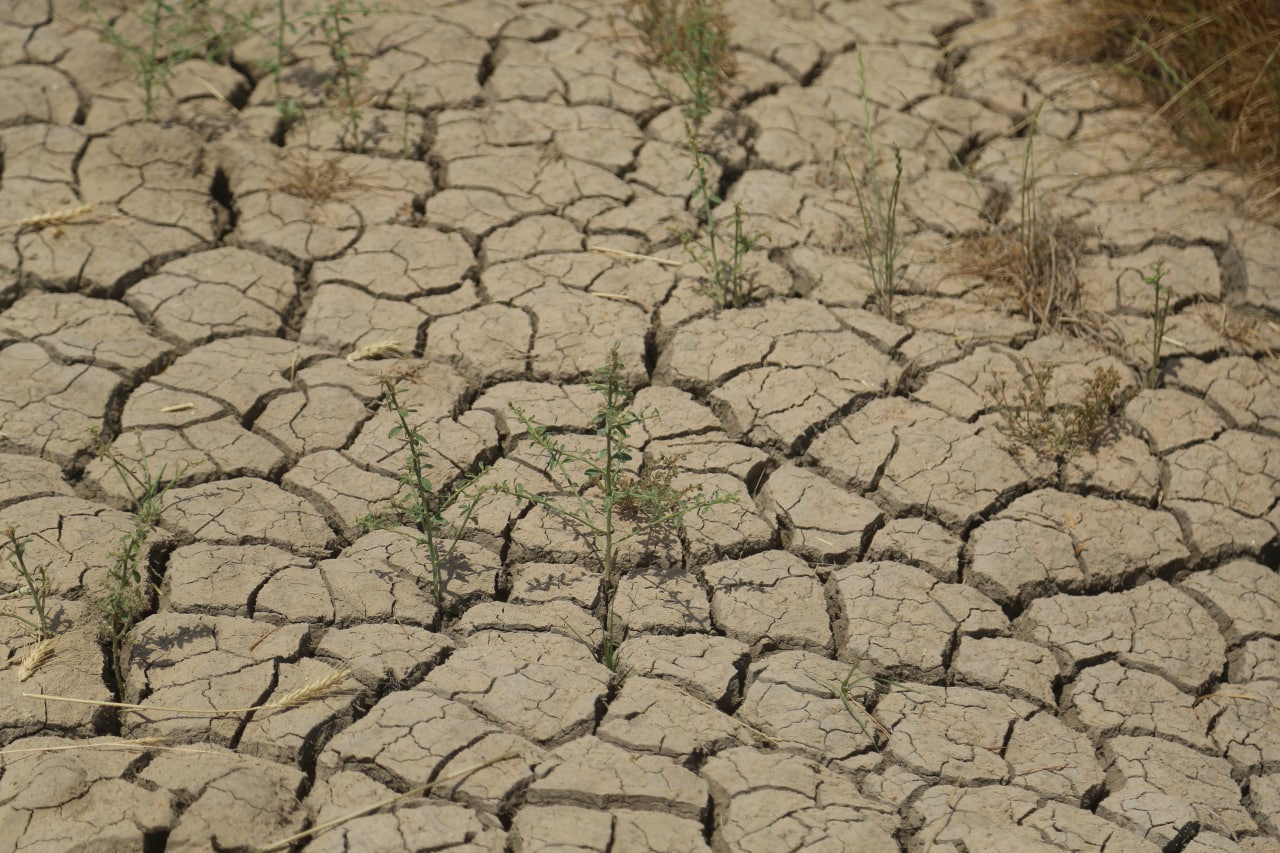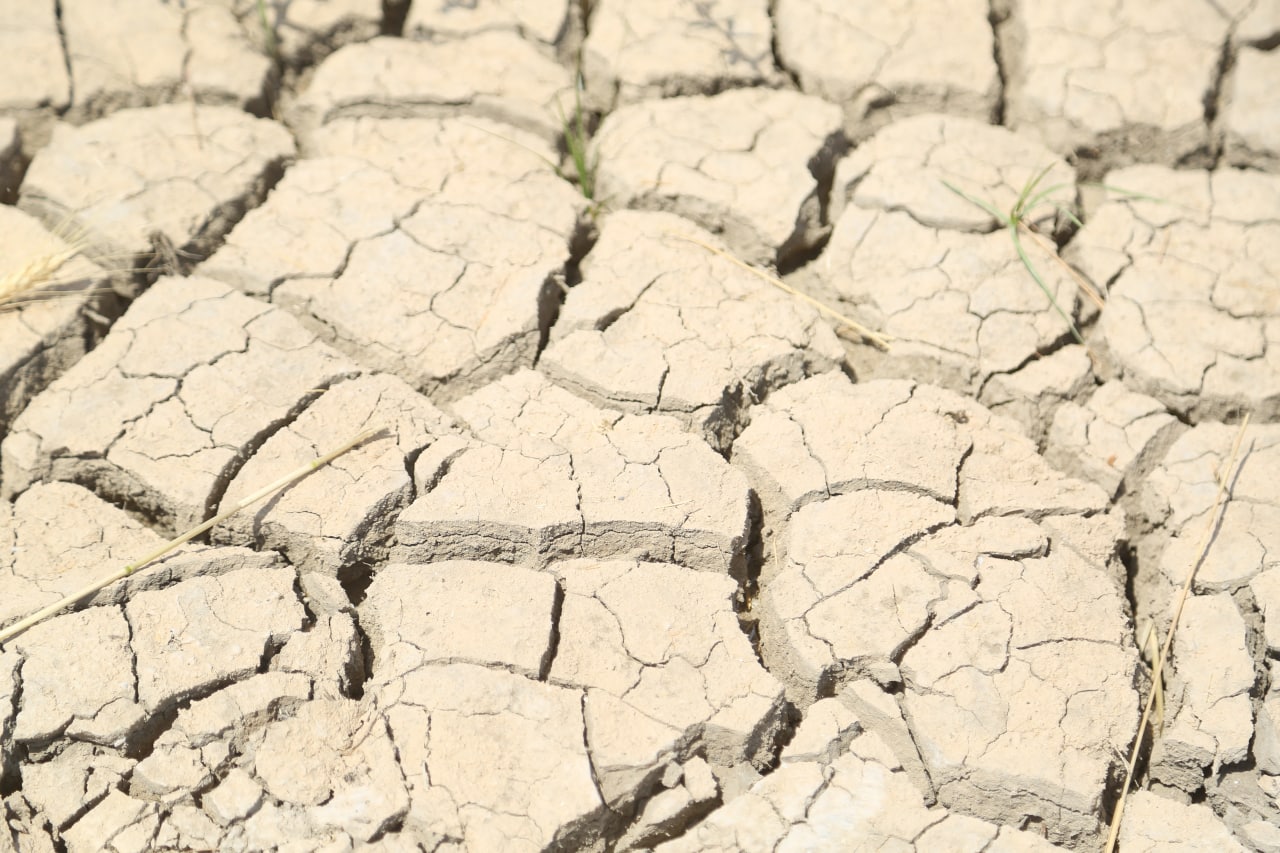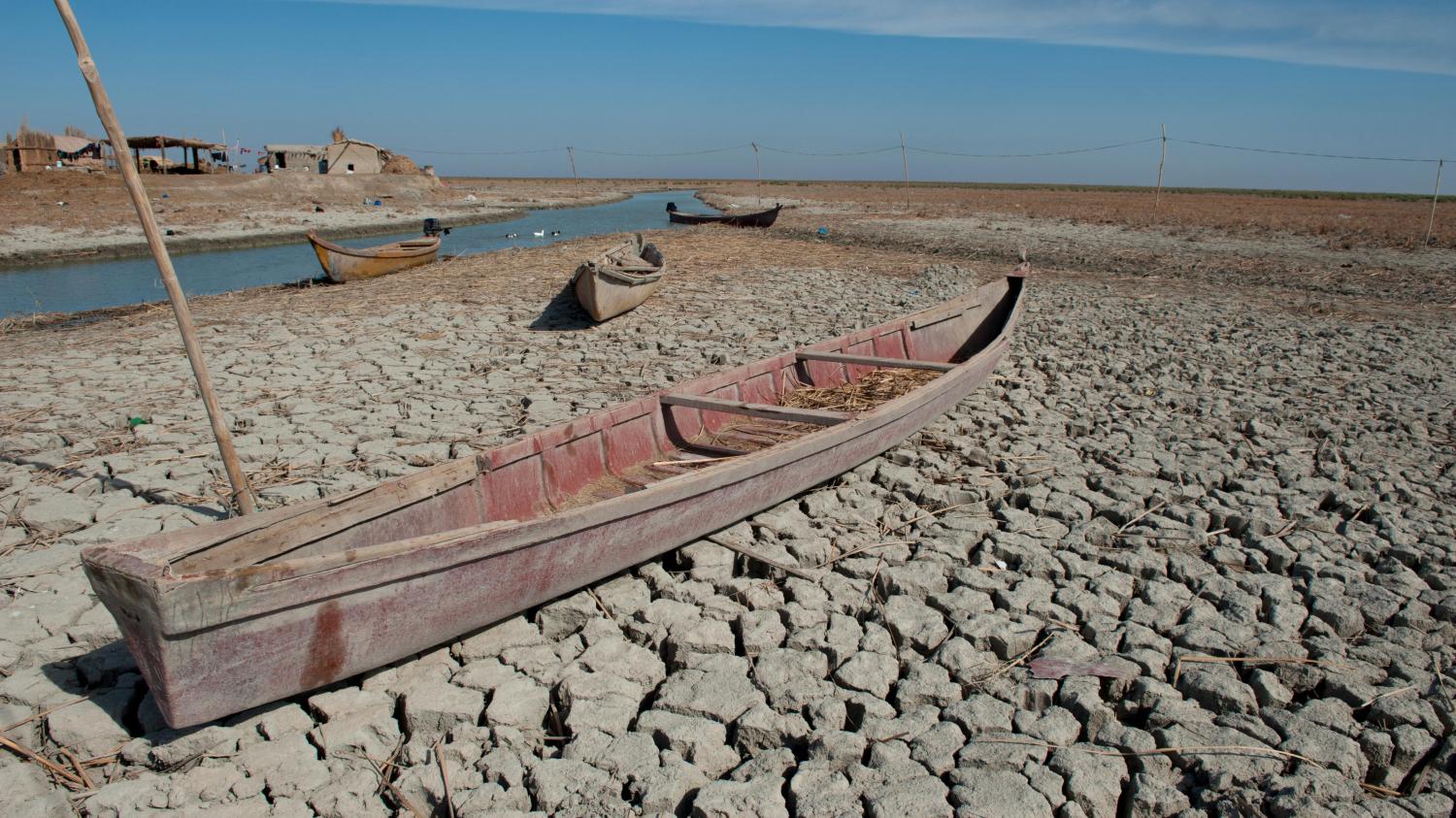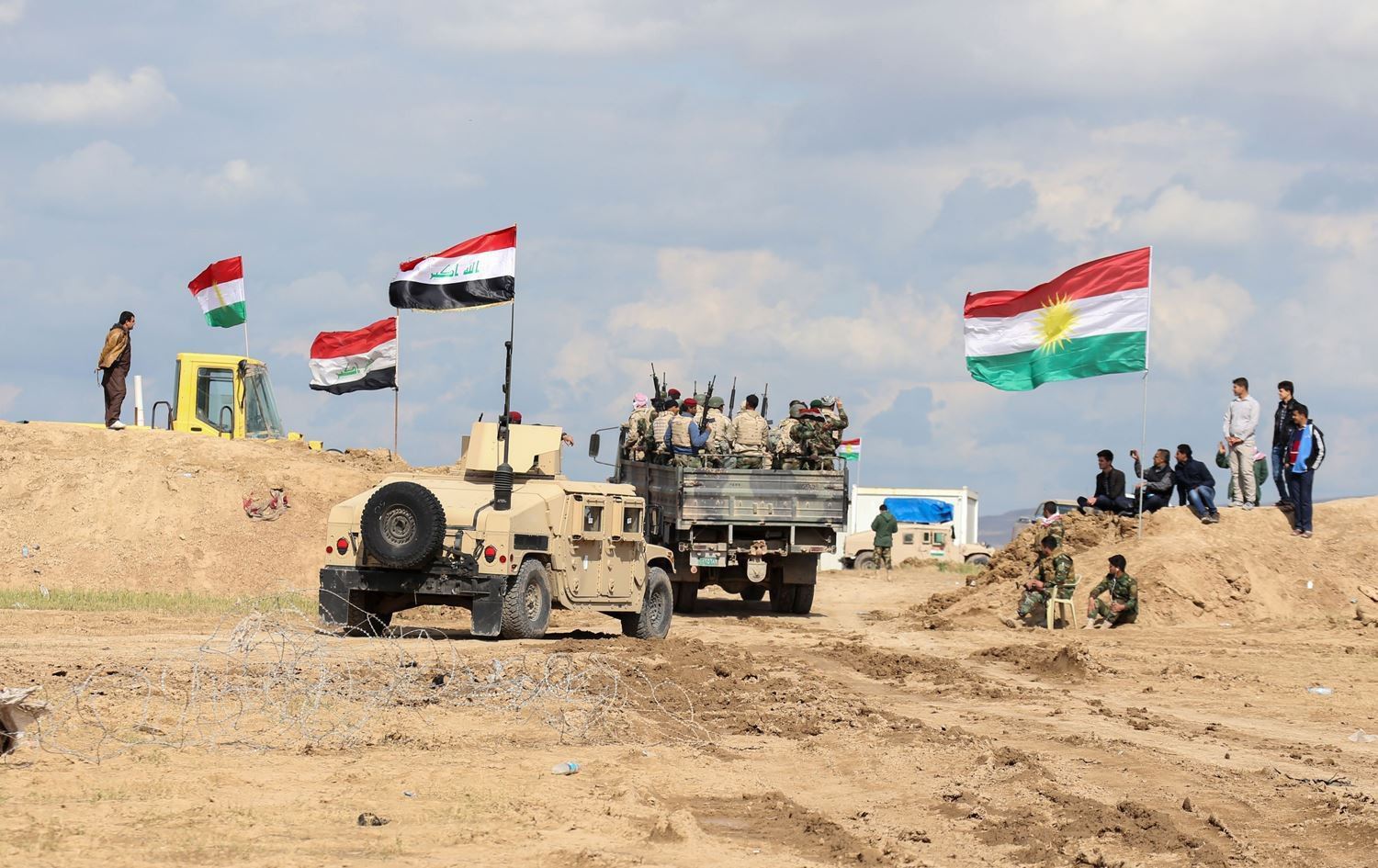The Iraqi Observatory for Human Rights said that the drought crisis and water scarcity are directly threatening the lives of citizens in southern Iraq and have resulted in massive material losses.
Despite this, government actions have not been successful or proportionate to the amount of threat that poses a disaster, the consequences of which will worsen the longer a solution is delayed.
Farmers and others who produce cattle and fish have been forced to abandon their locations for years owing to desertification and water scarcity, and they have pushed their families to live in inferior conditions, causing complex difficulties that compound the already afflicted places where they seek sanctuary.
The problem is concentrated in the governorates of Maysan, Basra, and Dhi Qar, and affects all of Iraq's cities, while the southern marshes, which are on the UNESCO World Heritage List, are nearly completely drying up, killing millions of fish as well as cows and buffaloes, some of which have been blinded by the water's salinity.
During an interview with the Iraqi Observatory for Human Rights, three men from Ahwar (Al-Jabayish in Dhi Qar governorate) stated that they are fighting for their rights "living in a horrible situation. Drought is affecting their communities, and their cattle is grazing on barren terrain.''
These men discuss how some families were forced to migrate to other governorates, while others were forced to migrate to the governorate's northern districts, where they still receive a percentage of the water.

picture description
The Iraqi Observatory for Human Rights on the tenth of July 2022 contacted five residents of the marshes in Maysan governorate in southern Iraq, who said that they "left towards other places in the governorate, which water is still receiving, but they also say that their stay in the new areas will not last long, as they are under threat of drought too".
They added: "Livestock died, livelihood began to be cut off, and the appropriate environment for living, which we were accustomed to for decades, we are starting to lose".
In Diyala province bordering Iran, some residents were affected by the Iranian government's cutting off of some rivers, and it is estimated, according to official and unofficial information, that there are dozens of small rivers that feed large areas of the province.
''The causes of this crisis begin with the policies of neighboring countries from which water originates, such as Turkey and Iran, and the weakness and neglect of successive Iraqi governments and their failure to adopt a correct, feasible, and studied water policy, and the concerned government departments taking measures that compound the problem on the long-term," said experts in the water file interviewed by the Iraqi Observatory for Human Rights.

According to an official report released earlier by the Iraqi Ministry of Water Resources '' The severe droughts expected until 2025 will lead to the complete drying of the Euphrates River in southern Iraq, while the Tigris River will become a limited watercourse, and they are the source of 98 percent of Iraq's surface water supply".
Thousands of hectares of agricultural area in southern Iraq became a barren desert, and salinity levels rose to record highs, killing everything cultivated on or near those grounds, in addition to a shortage of potable water.
According to data, desertification has devastated 69 percent of Iraq's agricultural fields, and the drought catastrophe has affected 7 million Iraqis.
Due to water scarcity, armed clashes between farmers in southern Iraq and their clans have erupted in recent years, resulting in deaths and injuries, according to occurrences reported to the Iraqi Ministry of Interior.
The Iraqi Observatory for Human Rights said that "Iran and Turkey's water policies towards Iraq portend a major water disaster. Tehran and Ankara should not use the water file for political purposes and water projects in Iran and Turkey should not affect Iraq's water quotas".
Successive Iraqi governments are responsible for not managing water in modern ways, and for their neglect of the great waste of this wealth, as well as the continuation of some farmers using traditional irrigation methods, which contribute to wasting water, and the control of some clans over quantities of water by illegal means.
Local officials in the governorates of Dhi Qar, Basra, Maysan, Muthanna, and Wasit warn that the problem emerging between some of these cities will worsen as a result of one of them "locking" water from the other, which reflects poor water management and the lack of a government regulator.
Only 3.5 percent of agricultural land in Iraq has irrigation systems, according to the UN, and the World Bank warned last year that the water issue would cause considerable losses in numerous economic sectors, "and it will affect more and more people in need of Iraqis" unless action is taken. To avoid this, concrete steps must be taken.
According to the experts whose opinions and assessments were conveyed by the Iraqi Observatory in this report, the Iraqi authorities did not take effective measures, and some of them stated that "mismanagement is evident in this file, in addition to the Iraqi governments' reluctance to take a more decisive position during negotiations with Turkey and Iran, which are constantly building dams on the water sources of Tigris and Euphrates".
Some experts said that "Iraqi governments do not move until after another party, whether local or international, talks about the crisis, and the results of their actions do not go beyond signing memorandum of understanding to which other countries do not basically adhere and that did not commit to international agreements signed between them and Baghdad in the past.''
Ahmed Shaker, an environmental activist in Dhi Qar governorate, where the marshes are suffering from drought, said during an interview with the Iraqi Observatory for Human Rights: “Some residents of the marshes are displaced towards areas where there are still more estuaries than they used to live in. The current drought of the marshes reminds us of their drought. In the nineties of the last century, when Saddam Hussein ordered them to be drained, there are those who exceed the water quotas for farmers, and there must be penalties against them".
According to experts familiar with the details of Iraq's drought crisis, who spoke to the Iraqi Observatory for Human Rights,'' The second water conference, which was held in Baghdad on March 6, 2022, did not bring anything new and Memorandums of understanding and mere recommendations to support Iraq are not enough to solve the aggravating problem and do not obligate the upstream countries to release their shares".
They are also surprised by what they describe as "Iraqi officials' love for the memorandums of understanding and presenting them to the media as something very important, even though it is nothing more than a preliminary agreement and requires new rounds of discussions to reach an agreement on how, the mechanism and the time period for implementation, while their country has been facing a real crisis for years and there is no room for any delay." The price is paid by the population, especially in southern Iraq".
after analyzing a group of press releases issued by the government and the ministries of agriculture and water resources in different periods, including the peak times of the crisis, the data analyst at the Iraqi Observatory for Human Rights found no announcing of a plan, for example, or taking extensive measures on the ground, with the exception of preventing the cultivation of agricultural crops that consume a lot of water.
Preventing the growing of agricultural crops that consume a lot of water is limited to one city rather than another, and that has a negative impact on farmers' financial stability.
The Iraqi Observatory for Human Rights' data analyst examined state financial budgets over the years and noted a paucity of investment on water infrastructure improvement.
The Iraqi Observatory for Human Rights urges Iraqi authorities to take the drought crisis more seriously, plan effectively, and consult highly qualified experts, rather than settling for signing memorandums of understanding or maintaining their weak position, whether in terms of regulating irrigation and controlling water consumption for agriculture and drinking, or during negotiations with Tigris and Euphrates source countries.
The observatory cautions Iraqi officials that issuing warnings of a worsening of the crisis when the population exceeds 50 million in 2030 does not absolve them of duty or suggest that they have completed their obligations, as they must continue to seek and implement solutions.
The Iraqi Observatory for Human Rights further notes that the authorities' propaganda tactics have failed to persuade residents to rationalize their water usage in one city over another, and that they have reverted to previous ways in order to make it appear ordinary and "going through the motions".
The Iraqi Observatory for Human Rights warns of the dangers of possible migration of residents from a number of areas in southern Iraq, as well as the death of livestock and fish, and environmental damage, and urges the Iraqi government to develop urgent plans to prevent any migration caused by water scarcity, which could disrupt community peace in the country's southern governorates.
The Iraqi Observatory for Human Rights calls on Iran and Turkey not to use the water file to negatively affect the lives of Iraqi residents. It also calls on the Iraqi government to follow legal mechanisms to put pressure on the two countries, which cut off water from Iraq from time to time.



